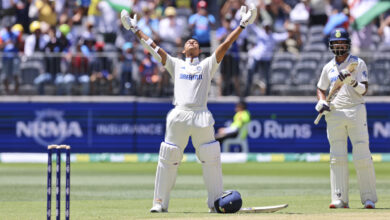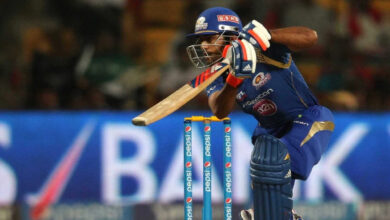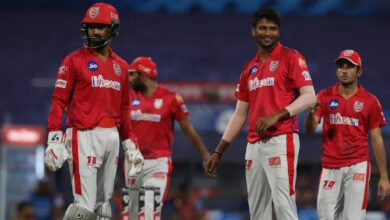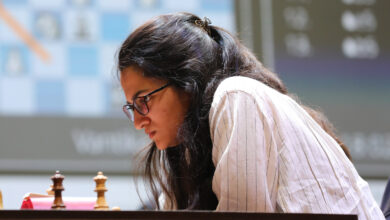Why Ayhika Mukherjee-Sutirtha Mukherjee partnership is good enough for bronze but needs fitness upgrades for gold | Sport-others News
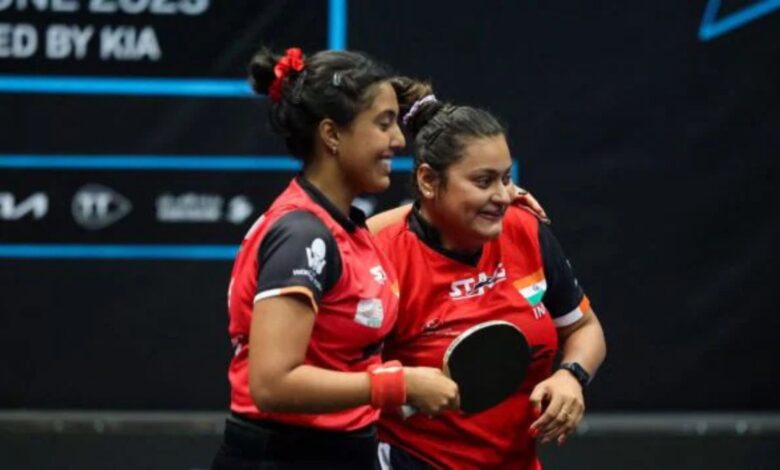
The pair of Ayhika Mukherjee and Sutirtha Mukherjee continued to create hory, securing a bronze medal after losing their semifinal match at the Asian TT Championships in Astana, Kazakhstan on Sunday.
The duo had no answer to Japan’s Miwa Harimoto and Miyuu Kihara and lost in straight games 3-0 (11-4, 11-9, 11-9). Their opponents though, weren’t any pushovers. Harimoto was part of Japan’s Paris 2024 Olympics silver-medal team and Kihara is a three-time World Championships medal winner. Ayhika-Sutirtha were confident going into the match having beaten the pair of Harimoto and Kihara in the final of WTT Tunis Contender last year but the Japanese duo have just upped their respective games in the past year and looked confident throughout.
The losing semi-finals are awarded bronze medals at these Championships and they became the first Indian women’s doubles pair to win a medal here.
Ayhika and Sutirtha have repeatedly raised the bar when it comes to Indian women’s doubles. They made hory at the Asian Games last year winning a bronze, India’s first medal. Then in Tunis last year, they became the first Indians to win the WTT Contender women’s doubles title.
While their win in Astana only reaffirms that they can compete with the best, questions will be asked about what they need to do to reach finals of top-level tournaments. Their best performance this year is reaching the Rd of 16 at both the Singapore and the Saudi Smash, and in their quest for a big-tournament medal, their performances at top WTT tournaments have to improve.
But first, one needs to understand what works for them.
27-year-old Ayhika’s strong, defensive play slows the game down, setting it up superbly for Sutirtha’s thunderous smashes. Ayhika uses an anti-spin rubber on the backhand that reverses the spin. It’s a tough rubber to use because you need to have great control over the ball. To reverse the spin, she has to first gauge the spin the opponent is putting on the ball.
What works in doubles is that she’s able to play it closer to the net and also takes the pace off the shot. The spins she puts on it can puzzle the opponent and if they play a loose return, Sutirtha can finish the point with her powerful forehand.
That’s really been their very successful gameplan throughout, somewhat dependant on how Ayhika can boggle the opponent and slow down the game.
One of the reasons for Ayhika’s success, according to her coach Soumyadeep Roy is because she can vary her shots using the same action.
“She can hit the ball with the same action, from the same height, but the opponent won’t know how the ball will spin or whether it will spin or not. It’s very difficult for the opponent to understand,” he said.
The problem arises when a top player — like World No. 7 Harimoto who they played in the semis on Sunday — is able to return Sutirtha’s smashes with ease.
What happens then?
Sutirtha’s forehand attack is returned with even more power, so much so that Ayhika isn’t always successful in slowing it down, once more. Her return is then met with an even powerful shot the opponent, and Sutirtha, just fails to reach it.
It’s how the Japanese pair won most of the points on Sunday and Ayhika-Sutirtha need to find a solution.
Roy says the pair have been working tirelessly ever since their Asian Games medal and are improving every day.“It’s always the question of what can Ayhika and Surtitha do to improve. We need to look at how much they have improved over the past year. Ayhika has beaten the best players in the world and that rubs off on Sutirtha too. Together they’re not scared of taking on top pairs. Before going for this tournament they were confident of medalling in doubles and now are already thinking of a World Championship medal,” he said.
When asked what needs to change for them to beat top players, Roy said that improving physically and technically is always needed.“Even the top players want to improve technically, so we will work on that. Yes, physically they need to improve so their reach can get better but overall I think they just need to keep playing together in order to get bigger results,” he said.



